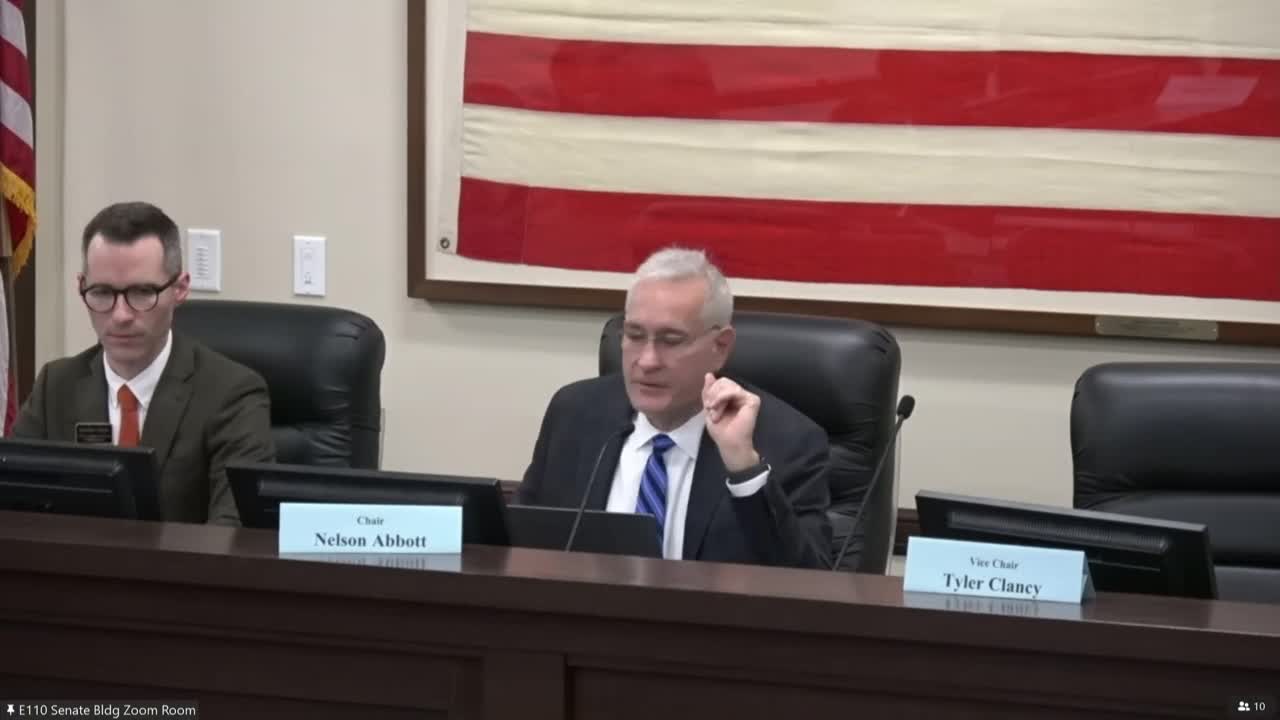Committee debates bill letting DCFS caseworkers seek warrants when they cannot see children

Summary
Representative Watkins introduced House Bill 83, “child welfare modifications,” saying the measure grew out of recent, fatal child-welfare cases and would give DCFS caseworkers a narrowly drawn ability to obtain a warrant to see children when they cannot get eyes on a child after a report.
Representative Watkins introduced House Bill 83, “child welfare modifications,” saying the measure grew out of recent, fatal child-welfare cases and would give DCFS caseworkers a narrowly drawn ability to obtain a warrant to see children when they cannot get eyes on a child after a report. “This bill...gives, the DCFS caseworker the ability to get a warrant,” Watkins said.
The bill, as described by Watkins, would permit a DCFS caseworker to seek a warrant when there has been a report of abuse or severe neglect and the caseworker cannot contact the household, cannot get anyone to answer the door or call, and therefore cannot confirm whether children are safe. Watkins told the committee the tool is intended to be “very narrowly directed” and that caseworkers should work with police when executing any warrant.
Committee members asked how the warrant standard would work in practice. Representative Lou Bey noted the bill’s language requires a “credible threat to the child's health, safety, or welfare” to justify a warrant and said he was unsure what would have to be proved. Watkins replied the trigger is inability to see the child after a report and investigators’ efforts to contact the household — she noted that attempts could span “a week, 2 weeks, 3 weeks” but that the bill does not set a specific clock.
Several members, including Representative Grishius and Representative Thompson, pressed on safeguards and possible misuse. Thompson asked whether any limits exist and whether the proposal applied in only extreme cases; Watkins repeatedly said the bill is limited to situations where DCFS cannot get eyes on the child and that other uses of police-assisted investigations would remain unchanged. Representative Miller asked why police could not always obtain warrants for DCFS; Watkins said police capacity varies across jurisdictions and that the bill is meant to provide an additional tool while still involving law enforcement when warrants are executed.
Public commenters raised due-process concerns. Delaine England, a private citizen, said an accusation does not equal guilt and warned that the bill’s standard seemed too low. A criminal-defense lawyer identified in the record as “Mister Martin” said current law permits law enforcement involvement and probable-cause warrants; he and another speaker worried the bill could lower constitutional standards if caseworkers without law-enforcement training could procure warrants. Jackie Warren, a resident who said the Gavin incident occurred nearby, warned the bill could enable false allegations to produce entry without cause.
After public comment, Representative Thompson moved “that we move on to the next agenda item” — effectively pausing further immediate committee action on HB 83. The motion to move on passed by voice vote; Representative Watkins said she would follow up on related legislation and fiscal issues. No committee recommendation on HB 83 was recorded at this meeting.
Why it matters: supporters said the bill responds to recent child fatalities and aims to shorten delays in urgent cases; critics warned the proposal risks widening government authority to enter homes without clear, uniform procedural safeguards. The committee did not advance the bill at this session and left the core questions about standards and judicial oversight unresolved.
Ending: Representative Watkins said she is sponsoring related legislation on false accusations (HB 33) and will return to the committee with further work; no date for renewed consideration of HB 83 was provided in the hearing.

